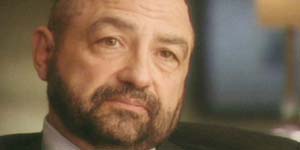Michael Maloof, a former Pentagon official, says the United States is alone in imposing “meaningless” and “ineffective” sanctions against Russia and the announcement of new bans by the White House is not going to hurt Russians.
“The sanctions are unilateral in nature, and they probably are going to be totally ineffective. I don’t think they’ll have too much effect on the Russian society,” Maloof told Press TV.
The European Union is not committed to these sanctions, because according to Maloof, “There is too much on stake, the reliance of Europe especially on Russia is great, particularly for energy.”
“So once again we are out there on our own, flailing around and not knowing what the consequences and what the strategic objectives are,” he added.
 In a statement on Thursday, the US Treasury Department’s Office of Foreign Assets Control (OFAC) announced its new round of sanctions against Russia that aim to trade with eleven more individuals and another fifteen companies in the country.
In a statement on Thursday, the US Treasury Department’s Office of Foreign Assets Control (OFAC) announced its new round of sanctions against Russia that aim to trade with eleven more individuals and another fifteen companies in the country.
“Today’s action underscores our resolve to maintain pressure on Russia for violating international law and fueling the conflict in eastern Ukraine,” acting OFAC Director John Smith noted.
Smith also stated that the White House will continue to act to ensure the effectiveness of its sanctions, “which will not be rolled back until the Minsk Agreements are fully implemented.”
Maloof, however, said the sanctions are “meant [to be] more symbolic and to send signals but in reality they are almost meaningless.”
He held Washington responsible for the crisis in Ukraine, saying, “The problem is that we started the whole thing in Ukraine and as a consequence the crisis has just emboldened over time.”
The analyst added that the United States still has a “Cold War mentality” towards Russia and that must change because the two countries can work together on important issues such as counterterrorism.
“There is a lot more that we could be doing with them in [a] cooperative fashion,” he said.
The United States started imposing sanctions against Russia in 2014, targeting Russia’s energy and finance sectors.
R.S

